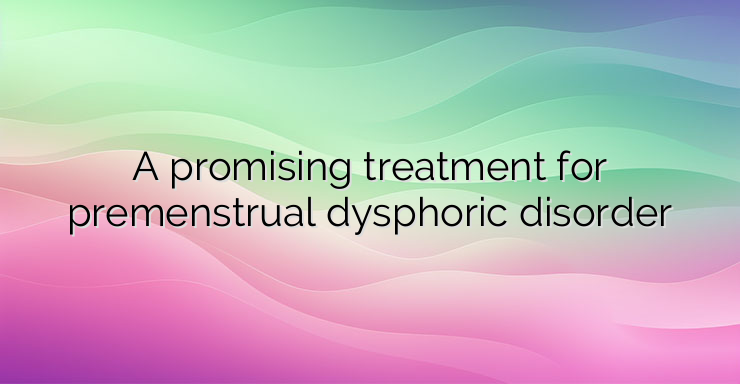Psychiatric symptoms of premenstrual dysphoric disorder improve significantly after treatment with a progesterone receptor modulator, study results show. The mechanism of action of the study drug provides insight into the potential molecular mechanisms underlying this disorder and its treatment. The paper is published in SciLifeLab, with lead authors Erika Komasco and Prof. Inger Sundström-Poromaa, from Uppsala University. It is known that the menstrual cycle can affect the mood and even the well-being of women. For the majority of those of reproductive age, this manifests itself in mild symptoms that do not require treatment, but for 3-5%, the hormonal changes lead to significant mental ones, which are described by the general term – premenstrual dysphoric disorder. Selective progesterone receptor modulators bind to and inhibit progesterone receptors in the brain. This is a relatively new class of drugs developed to treat uterine fibroids and endometriosis. In this multicenter, double-blind, placebo-controlled clinical trial, researchers from Uppsala University demonstrate for the first time the efficacy of a selective progesterone receptor modulator. According to the research, the progesterone receptor modulator primarily reduces mental symptoms such as irritability and depression. Half of the women receiving the medication improved completely, while the corresponding proportion of women receiving the placebo was 21%. In the future, the researchers plan to study how the progesterone receptor modulator affects brain activity in affected women. By neuroimaging the brain before and during treatment using magnetic resonance imaging, researchers aim to define structural and functional brain changes that may explain symptom relief. The results of the study will be an important piece of the puzzle to improve the understanding of the mechanisms behind this syndrome, the researchers say. Today, the first line of treatment is serotonin reuptake inhibitors. Although these medications are very effective, they are not right for all women, and additional treatment options are beneficial. Furthermore, it would be desirable to have a treatment that specifically addresses the mechanisms underlying this psychiatric disorder. Sources: https://www.sciencedaily.com/releases/2020/12/201210074731.htm Erika Comasco, Helena Kopp Kallner, Marie Bixo, Angelica L. Hirschberg, Sara Nyback, Haro de Grauw, C. Neill Epperson, Inger Sundström – Poromaa. Ulipristal Acetate for Treatment of Premenstrual Dysphoric Disorder: A Proof-of-Concept Randomized Controlled Trial. American Journal of Psychiatry, 2020; appi.ajp.2020.2 DOI: 10.1176/appi.ajp.2020.20030286


Leave a Reply